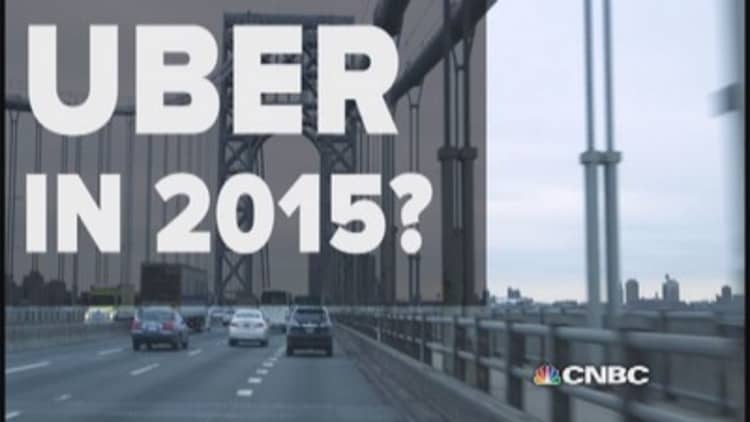Taxi-hailing apps like Uber are facing a crackdown in China where the government has banned unlicensed drivers from offering services.
The tightening of rules – but not an outright ban -- comes amid rapidly growing popularity for hailing apps.
"Under Chinese law, a private car owner cannot take passengers for profit, however, some vehicles offered on the basis of taxi-hailing apps are privately owned by their drivers," China's Ministry of Transport said in a statement late on Thursday.
But it added that it "encouraged innovation" and welcomed the apps in a regulated way.
The statement did not mention Uber, and The company told CNBC it is "running as usual".
"We are actively working with authorities around the world to adopt appropriate regulations to accommodate new technologies that can help solve many of the current problems with urban transportation," an Uber spokesperson said in a statement via email.
Regulation, Stiff competition
However, China's crackdown raises a question about the future of Uber in China.
Uber Black – the San Francisco-based firm's limousine service – uses licensed chauffeurs and would appear to be allowed under the Chinese rules. Uber X – their regular service – also uses licensed drivers. But it's uncertain whether its new Peoples' Uber – which allows unlicensed people to use their cars as a taxi via the app – could be shut down under the new rules.
As well a tough regulatory environment in China, Uber is facing rigorous competition from local players.
Didi Dache, which is part-owned by internet group Tencent, and Alibaba-backed Kuaidi Dache are the two biggest taxi app players in China. Both work with licensed taxis and will not be affected by crackdown.
Uber is now has a hefty valuation of $40 billion and is too backed by a Chinese company. Baidu took a stake in Uber last month giving it access to the Chinese market.

But China has not been favourable to foreign technology companies such as Microsoft and Apple, while Twitter and Facebook are non-existent in the country. Uber is likely to face tough competition in China, analysts said.
Read MoreSydney to Paris: Uber's 5 biggest issues right now
"Looking at what is going on in China with regards to ride share and taxi apps it is already a competitive market so it is not just Uber trying to create an industry as there are strong local players," Jack Kent, senior mobile analyst at IHS, told CNBC by phone.
"There are players with deep pockets who have a huge relationship with customers in other areas such as content, payment services, retail and games."
The headwinds in China come after Uber faced intense regulatory pressures and reputational damage in 2014.
Uber was banned in the Indian city of Delhi after one of its drivers allegedly raped a passenger. In France, the controversial UberPop service – which allows drivers without a professional taxi license to register with Uber and offer trips in their own cars at a cheaper rate – was banned. This followed suspensions in the Spain and Netherlands.


